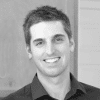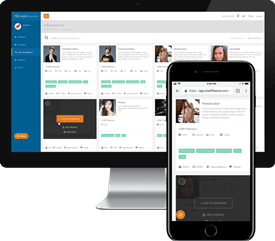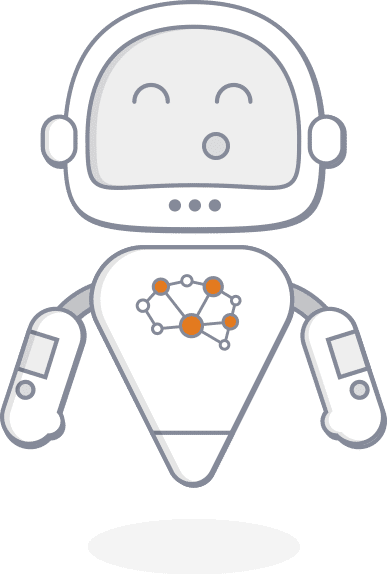Last Updated on December 30, 2020
Mike Sherbakov is an award-winning speaker, entrepreneur, philanthropist, and leadership consultant. Mike is the founder of Greatness Collective and host of the DO GREAT THINGS™ podcast, empowering leaders with resources to change the world through their lives and businesses. Mike has worked with brands such as Fitbit, lululemon and Equinox, to name a few. Having served on active duty in the United States Marines, Mike has traveled to 55 countries and counting. You can follow Mike on Instagram or visit greatnesscollective.com or mikesherbakov.com to learn more.
Can you briefly fill us in on what the Greatness Collective does?
The Greatness Collective is really just a community of people that are passionate about making a difference and creating a better world. And it really started with us going down to Mexico and building homes for families in need and it’s really expanded since then into this amazing community of social entrepreneurs, purpose driven leaders and people who just want to make a difference.
Is there a partnership with a brand that stands out to you as one that was particularly memorable?
Looking back, I never thought I would be able to partner with one of the brands let alone several of them. So Lululemon is always one of those amazing companies I feel really blessed to have been an ambassador and a legacy ambassador with them now, Fitbit is actually a company I’ve been with for four years now and we started a local community program here in San Diego that’s now spread to twelve cities across the country.
And really other brands like ZICO and ONE Bar and Suja and Perfect Bar these amazing companies that are passionate about creating communities and creating products and services that are creating a better planet it’s really cool to be a small piece of that puzzle as well.
Can you describe social entrepreneurship and how it might relate to the work some influencers do?
Yeah!. So entrepreneurship is really just being a business owner, right it’s starting your own business. Social entrepreneurship is now saying well how do I use business as a force for good. And we’re starting to see the evolution of business I call it business 4.0 where we had 3.0 which was people, planet and profit, right we move beyond just making money to now considering well how are other people affected, how are we affecting our planet and I really believe that we’re moving into this business 4.0 model which is now purpose.
So it’s people, planet, profit, and purpose. And I think if you combine all of those that’s really what I’m passionate about is these social entrepreneurs they’re using businesses to create change. They’re seeing a challenge in the world and they’re saying how do I address that not just on my own, right. If I see trash on the street one way of solving that is me going and picking up the trash and putting in the garbage. Another way is creating a business or a movement around it, creating a community where all the sudden, you know, thousands or millions of people around the world are picking up trash and throwing it away. So it’s really leveraging the power of business which can impact so many people and create so many ripples and using that as leverage to create a better world.
When mentoring people, what are some common issues you find in terms of those who are operating at a fraction of their potential (I’m aware there are likely many reasons, but are there a few prominent ones you can list?)
The biggest one every single time is mindset. It’s rarely a question of what they’re capable of and always a question of what they believe they’re capable of and this happens on an individual level just like it does on an organizational level, you know, and it’s not a bad thing I think that’s important. That’s something that I talk about often when I’m working with individuals or companies. I say, you know, the fact that you’re not at your potential that’s good that means that there’s a little bit of a gap there I call it a divine discomfort.
Like there’s something they know they’re capable of doing that they’re not doing and it just important number one without sounding too woowoo or out there but you have to believe that you can do it. Every person that ever achieved something great believed that they could do it and then they set out to do it so ultimately it is a strong belief in yourself and what you’re capable of.
In a recent post on Instagram you reminded your followers that it’s OK to live a life others don’t understand. At what point in your life did you “break the mold”?
Yeah there were a few of those moments. I was in the Marines for five years and there’s a certain stereotype that comes with being a marine and I found myself – I excelled in that environment and yet I wasn’t the stereotypical marine that a lot of people think of. And then when I went to college afterwards I was in a fraternity and yet I wasn’t this stereotypical fraternity guy. And I just realized that so much of my life I was a bit of this contradiction where I didn’t do things a certain way just because everyone said that they needed to be done that way. And I actually feel the same way about business.
This is why I’m so passionate entrepreneurship because I think there’s a lot of people out there talking about how, you know, hustle, grind make as much money as you possibly can and yet I’m here saying well yeah you can do that money is amazing, let’s create a lot of it but let’s use it for something that’s meaningful to us. and so what I love is now there’s this new wave of entrepreneurs that are saying well I won’t get into business or I won’t get involved with an organization unless unless it has a cause, unless it has a mission that I feel connect too.
So those are probably the biggest examples I could see it really, you know, not necessarily needing to have everyone understand me. And I look at examples like Elon Musk. I love what Elon Musk is doing, what Oprah is doing, what Richard Branson is doing and all of them are really different in their own way and I can imagine that as they kind of, you know, progress through life there’s some people that a lot of people don’t understand them. They go, you know. What kind of life is that I don’t get it and it’s not their job to explain it to anyone else they’re just there to do what they need to do.
Can you tell us more about your approach with Greatness Collective? We’ve been inspired by organizations such as Charity Water and we’re wondering if you take a similar approach in terms of solving issues people have with some charities?
Yeah and Scott Harrison’s done an amazing job with Charity Water. I love anyone that can take their background and leverage it. I mean he has this background and experience in night life and so he’s taken that and said well look I was in this industry and I saw how unfulfilling it was let me now leverage the power of the network, the power of the people that I’m connected to and the resources I have, and then do something meaningful out of it. And I mean if you talk to him you’ll notice a huge difference between where he was, you know, this totally unfulfilled state over striving for more and more and more to now he’s created something so meaningful that millions of people have not only have gotten behind but the lives he’s impacting through Charity Water.
Like, you know, I think about this stuff all the time. I gave a talk recently kind of like a TEDx style talk on five important words and it is “you are going to die” I know that sounds really morbid I don’t mean it in a morbid way. I mean it from the sense of let’s use death as a reminder for us to do what’s meaningful to us during the time that we’re here.
With all of your different ventures and areas of expertise, how do you structure your average day?
You know, I used to pride myself of having a super busy schedule back to back to back to back and this year my theme is simplify and I actually have more white space in my calendar than ever before. So I have certain non-negotiables, let’s see I’ll pull up this app that I love, so you can see cold shower, meditation, green juice, push-ups, and journal and write so those are the non-negotiables that I do every single day no matter what. And then outside of that I’ll schedule a few hours just twice a week where I’ll take calls or, you know, interviews or things like that but the rest of the time is really there for me to creatively – to write, to read, to create content, to grow our community in a meaningful way but I notice that as long as I have the basics, those non-negotiables for me everything else kind of falls into place.
What’s your take on the state of influencer marketing and where do you see it headed in the next five years or so?
Well, you know, one that I’ve noticed about Instagram is in general it seems like we’re moving away from numbers which I love. I mean Instagram announced recently, you know, they’re already doing it in Canada and In Australia. They’re going to bring it to the US soon we’re going to remove likes altogether which is great because it does a couple things. It removed the social pressures of feeling like comparison and so it’s not about how many people are liking it and comparing these like to that like to that like but it’s about just authentically sharing content. And I think because numbers go so inflated over the years and it was so easy at certain times to build this big, huge following people just want real. I mean this is why lives are so important, right. IGTV’s and Facebook lives and people just want to see almost like the behind the scenes real because all they’re getting is this filtered, you know, highlight reel of everyone and they want to know okay what’s the real thing.
And what I love about influencer marketing is the more real someone is at this point the more of a genuine community that they create and communities are kind of leaving. If they’re seeing that there’s someone that they’re not resonating with, someone that’s just sharing a very different message or that’s not coming off as real or authentic they’ll just leave, you know, because there’s a hundred or a thousand other choices that they have and they end up coming to the communities that feel very real for them. I’ll give you an example. One of my dear friends, Melissa Ambrosini is kind of one of the most well known wellness people in Australia.
She has such an amazing community. So she doesn’t have millions and millions of followers but I think it’s in the hundreds of thousands and I was on her podcast and after her podcast we had more people sign up for our retreats, our house builds in Mexico, our programs from her community which in the grand scheme is way smaller than other, you know, communities that I’ve spoken to but because they’re so connected I mean there’s that concept of a thousand true fans. Have you heard of that? There’s this idea, I can’t remember, Neil something is the one that came up with it but he says, you know, if you have a thousand true fans as a business or an individual you’ll never have to kind of “work” another day in your life and what he means by that is whatever it is you create if you have a thousand people that just love your brand, what you’ve created that’s all you need. And, you know, to come back to the point about influencer marketing it’s not about having big huge numbers but can you create, you know, a hundred real true fan, a thousand real true fans by being as authentic and raw as you can be and I think the community naturally grows.
Note: Influencer Spotlights are edited for time and clarity.

Andrew is the Head of Client Services for Intellifluence and has a background in communications. He is committed to helping brands get the most out of their campaigns and is the co-host of the Influencer Spotlight series.





